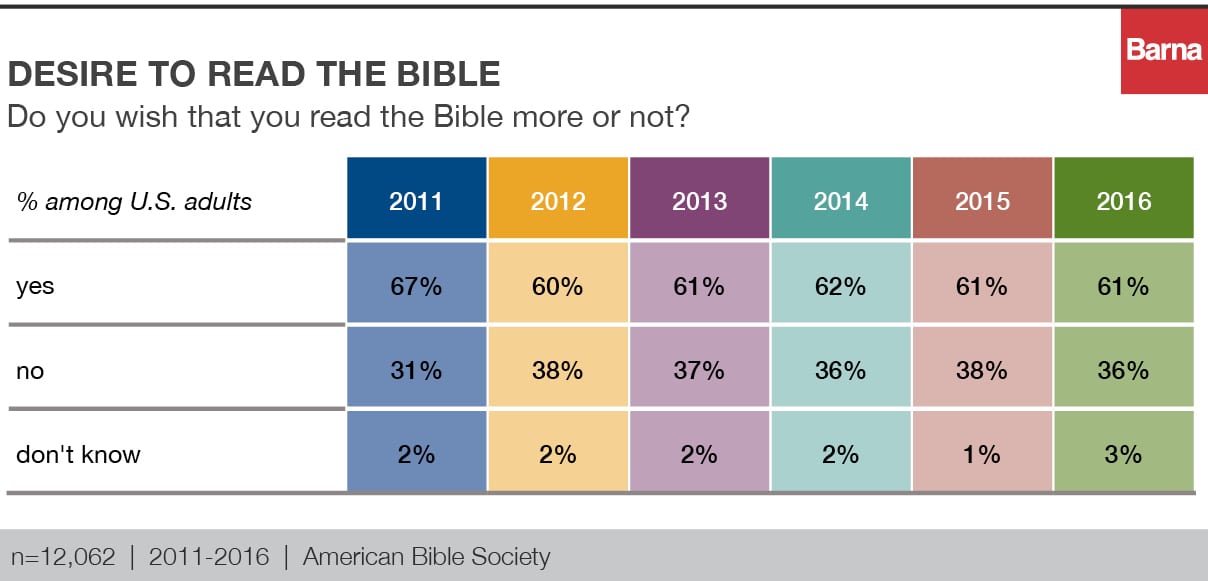Despite hand-wringing by punditry about Western secularization, real-world evidence shows the desire to read the Bible remains strong among Americans. The Barna Group kicked off 2017 by unveiling new statistics that reveal the majority of Americans say they aspire to read the Scriptures more. Practice of this essential spiritual discipline has remained relatively steady since at least 2011, according to data compiled by Barna and the American Bible Society.
“We have consistently seen in our research that, even with skepticism on the rise, Americans still hold the Bible in high regard,” Barna Editor-in-Chief Roxanne Stone reported. “After all, two-thirds of Americans (66 percent) agree that the Bible contains everything you need to know to live a meaningful life—why wouldn’t you want to read such a book more often?”
In 2016, more than six out of ten of respondents (61 percent) said they wanted to read the Bible more often. That proportion has stayed fairly constant since 2011 when Barna began keeping data. It has ranged between 60 percent and 62 percent, except in 2011, when it peaked at 67 percent of respondents.

Most individuals either followed through with this goal or at least maintained their reading habits. Twenty-three percent of all respondents said they read the Bible more often in 2016, while an additional 66 percent said they read the same amount. The combined total (89 percent) tied for the highest level recorded since Barna began keeping track of this particular statistic in 2012.
Only 8 percent of respondents said they read the Bible less in 2016, the best ever recorded in the annual survey. The proportion of respondents who increased their Scripture intake (23 percent) was about average as compared to previous years.
Of those who said their Bible reading increased in 2016, by far and away the most common reason offered by respondents (cited 67 percent of the time) was that it served as “an important part of [their] faith journey.” Among those whose amount of reading decreased, by far the largest segment (58 percent) said it was because they had become “too busy with life’s responsibilities (job, family, etc.).”
“Spiritual leaders should feel heartened by these numbers,” Stone observed. “People still see Scripture reading as a worthwhile pursuit. The key is helping people see Bible reading as essential and not merely aspirational.”
No comments yet




